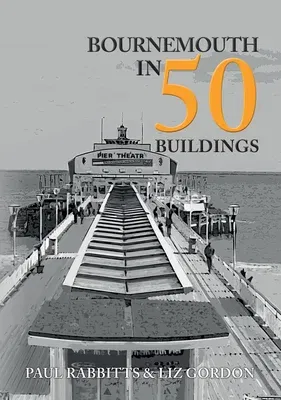Today, Bournemouth is one of the favourite resorts on the south coast,
but until the early nineteenth century, the area was just heathland
where cattle grazed. In 1810, Lewis Tregonwell - regarded as the first
inhabitant and founder of Bournemouth - visited the beach with his wife.
She loved the area and persuaded him to build a house there. Tregonwell
later bought more land and landowners planted pines on the heath, but
there was no settlement at Bournemouth until 1837.The railway reached
the town in 1870, which made it far easier for people to travel there
and increased the number of visitors. Victorian Bournemouth, which was
marketed as a health resort, grew at a phenomenal rate and many new
buildings that appeared as the town developed remain today. In
Bournemouth in 50 Buildings, authors Paul Rabbitts and Liz Gordon
highlight the town's significant architectural landmarks from across the
centuries. Through a fascinating and diverse selection of buildings they
tell the story of the town's development, its people and their way of
life. Among the places they focus on are churches, hotels, inns, houses,
cinemas and educational establishments. The scope of buildings the
authors have selected is incredibly wide - ranging from the grand to the
modest - and many different architectural styles are featured. Readers
will discover everything from beach huts and Boscombe Pier, to the
Russell-Cotes Art Gallery and Museum together with modern office blocks
and workplaces. Bournemouth in 50 Buildings offers an engaging and
valuable historical perspective on the town.

